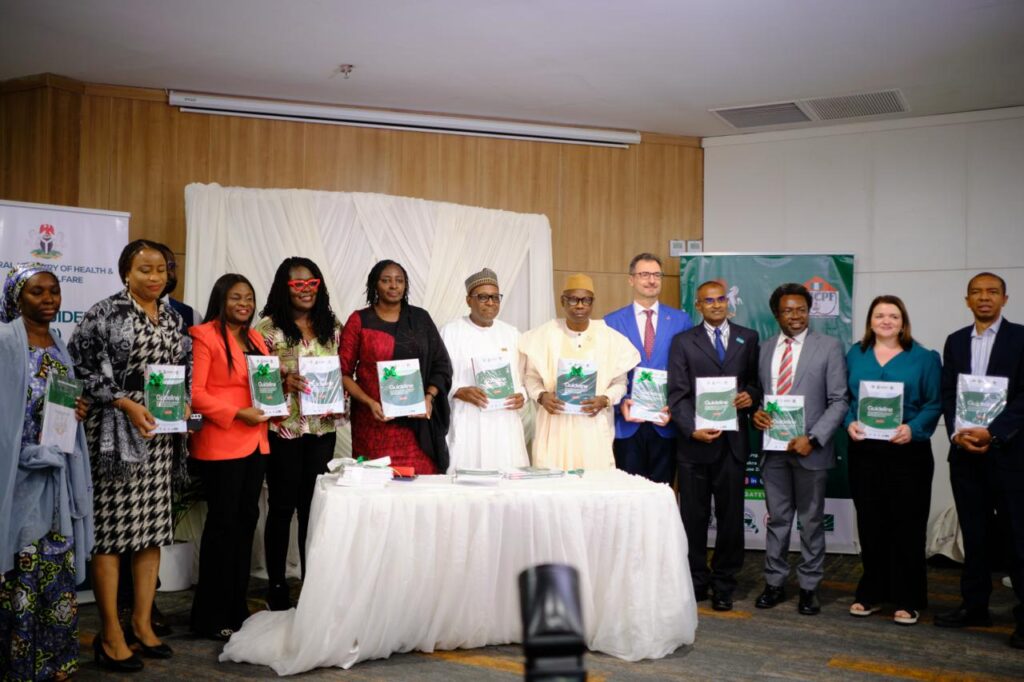The Federal Government has approved the disbursement of ₦32.9 billion under a revised funding framework for the Basic Health Care Provision Fund (BHCPF), aimed at expanding access to quality primary healthcare services and improving transparency in resource utilisation.
Coordinating Minister of Health and Social Welfare, Prof. Muhammad Ali Pate, who disclosed this at the 12th Ministerial Oversight Committee (MOC) meeting in Abuja, also unveiled the BHCPF 2.0 Revised Guideline, a policy instrument designed to ensure equitable, efficient, and accountable delivery of basic health services nationwide.
Pate, who also chairs the MOC, said the ₦32.9 billion disbursement, expected to be completed before the end of October 2025 will support over 8,000 primary healthcare centres (PHCs) across the country, with expansion plans to cover 13,000 facilities under the new phase.
He explained that the new guideline increases quarterly allocations to PHCs to cover essential operational costs, health worker incentives, emergency services, and essential drugs.
In a statement signed by the ministry’s Head of Information and Public Relations, Alaba Balogun, the minister noted that the revised framework introduces stronger accountability measures, including stricter public interest protocols and conflict-of-interest rules.
According to him, a joint task force, in collaboration with the Independent Corrupt Practices and Other Related Offences Commission (ICPC) has been activated to monitor fund utilisation at the grassroots level.
Pate further revealed that a digital transformation process has begun to improve service delivery and data tracking. He said an end-to-end digital platform for the National Emergency Medical Treatment Committee (NEMTC) will go live within two weeks, while state health insurance agencies must now deploy claims-tracking systems and submit quarterly progress reports.
On data governance, he said the government is institutionalising Data Quality Assessments (DQAs) to enhance the accuracy of national health records. He directed states to submit lists of beneficiaries with verified National Identification Numbers (NIN) to the National Health Insurance Authority (NHIA) by December 2025 to promote traceability and eliminate duplication.
Highlighting progress achieved through the BHCPF, Pate disclosed that Nigeria has recorded a fourfold increase in the utilisation of primary healthcare services, with over 80 million patient visits in the first two quarters of 2025.
He added that over 21 million Nigerians have accessed services through the Vulnerable Groups Health Insurance Fund, while more than 15,000 women have benefited from emergency obstetric care reimbursements.
The minister also reported a 12 per cent reduction in maternal mortality at the facility level since the commencement of BHCPF reforms, with immunisation coverage expanding to 92 per cent in northern states through ongoing measles, rubella, and polio campaigns.
Minister of State for Health, Dr. Iziaq Adekunle Salako, said BHCPF-supported facilities are showing stronger performance, improved service utilisation, and better delivery outcomes.
He stressed the need to expand funding to cover more PHCs, adding that the government will work with the National Assembly and key stakeholders to increase investments in primary healthcare.
Ogun State Commissioner for Health, Dr. Tomi Coker, noted that the introduction of unique patient identifiers, such as the NIN, has improved data quality and service tracking.
She said the reforms have shifted healthcare delivery from policy rhetoric to measurable results.
WHO Country Representative, Dr. Pavel Ursu, commended Nigeria’s progress, citing evidence-based decision-making and accountability as key drivers. UNICEF representatives also reaffirmed their commitment to scaling up BHCPF interventions for women and children.
Executive Director of the National Primary Health Care Development Agency (NPHCDA), Dr. Muyi Aina, said public confidence in the health system has grown, with over 40 million patient visits recorded quarterly at PHCs.
He revealed that ₦14 billion had been disbursed in the last two quarters to 8,304 PHCs under the NPHCDA gateway, with 5,212 additional facilities to be added soon in partnership with states.
Chairman of NEMTC, Dr. Ismaila Musa Jibrin, added that BHCPF support has boosted emergency response systems nationwide, with over 11,000 emergency patients transported to facilities last quarter.
He said the Rural Emergency Transport Scheme now operates in more than 150 local government areas and will soon expand to conflict-prone regions.
The meeting brought together representatives of state governments, development partners, and civil society organisations, all of whom pledged continued collaboration with the Federal Government to accelerate Nigeria’s progress toward universal health coverage.















